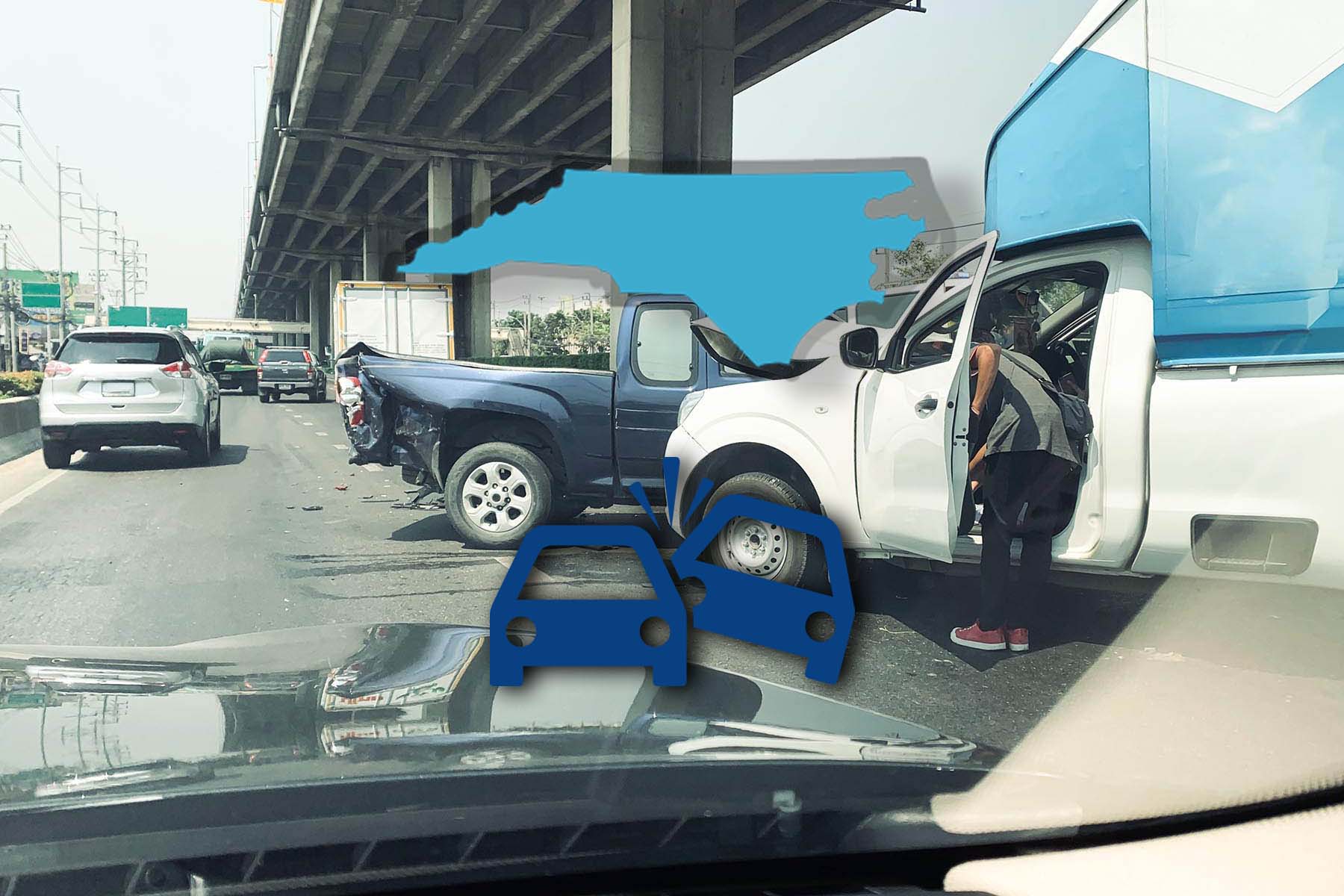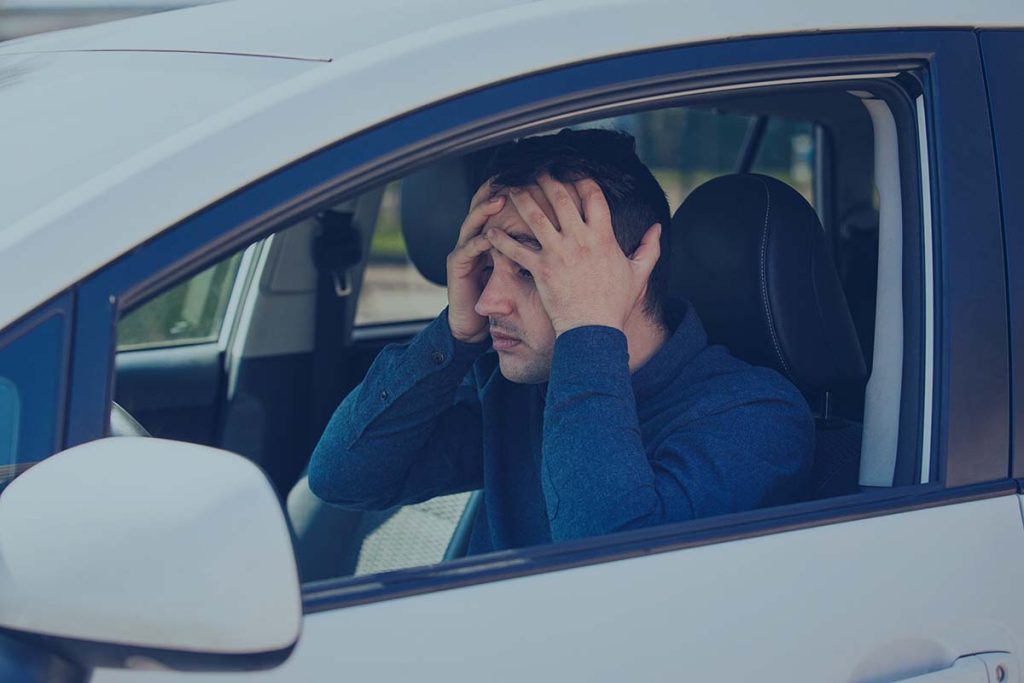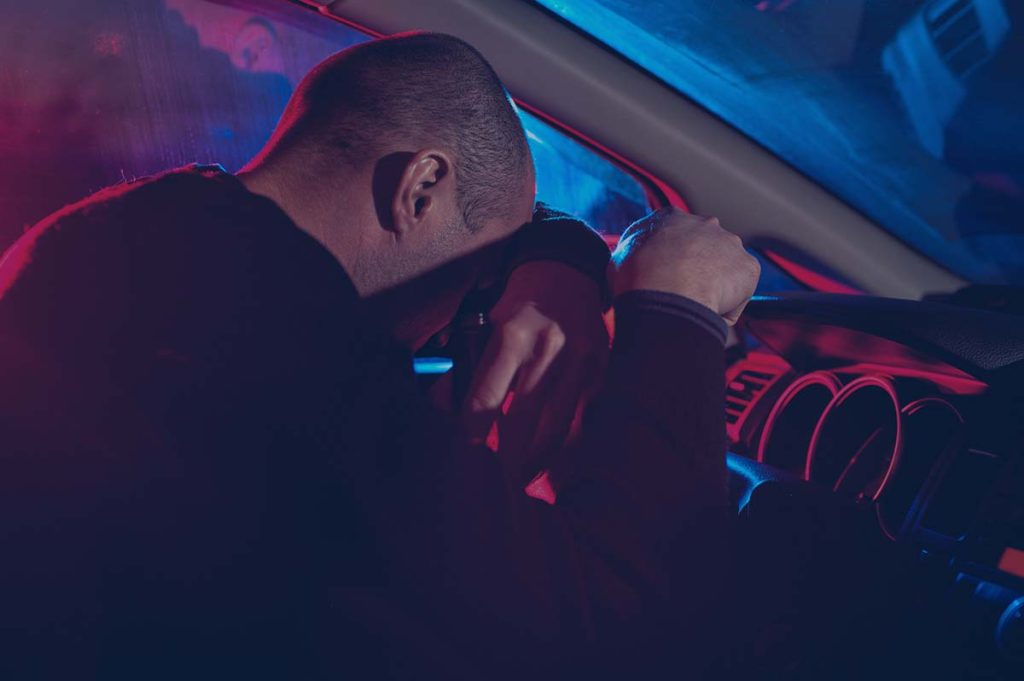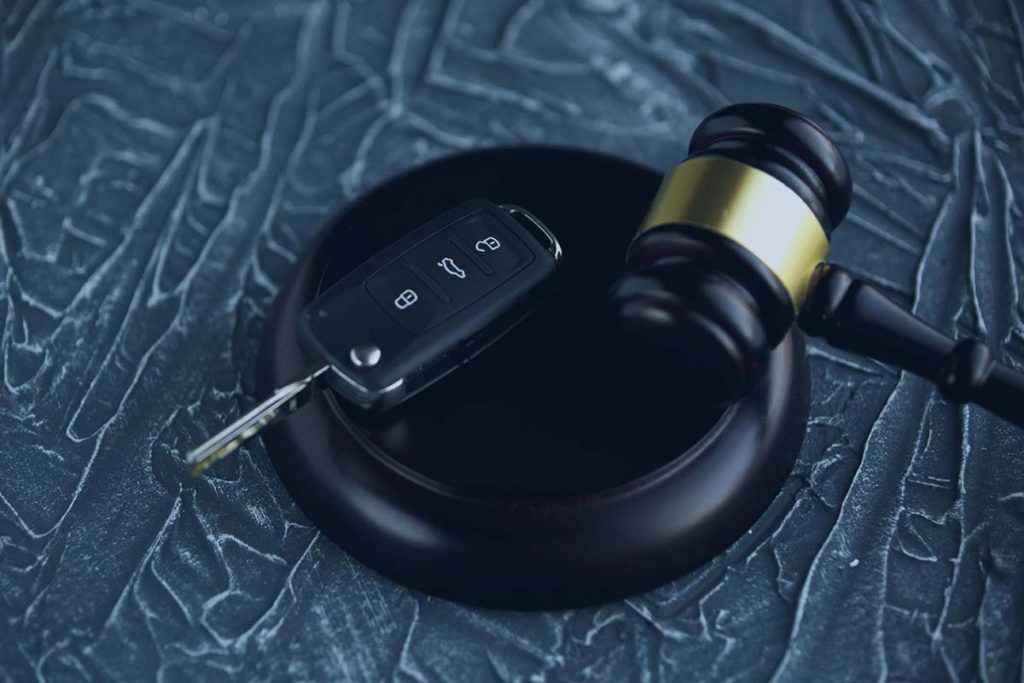
North Carolina Hit and Run Laws: What happens if someone leaves the scene of an accident?
- North Carolina Hit and Run Laws: What happens if someone leaves the scene of an accident?
- North Carolina hit-and run-laws explained: what happens when you leave the scene of an accident?
- When does an accident become a crime in North Carolina?
- Is leaving the scene of an accident in North Carolina a misdemeanor?
- Is leaving the scene of an accident a felony in North Carolina?
- What is the penalty for leaving the scene of an accident in North Carolina?
- What to do if someone hits your car and drives off in North Carolina
- What to do if arrested for a hit and run
- How is fault determined in North Carolina?
- What is the statute of limitations on accidents in North Carolina?
In North Carolina, an accident becomes a crime if anyone involved leaves the scene without fulfilling statutory obligations. For example, state statute section 20-166 says that you must stop your vehicle immediately after an accident, exchange contact information, and render reasonable assistance to anyone who needs it.
Quick take: leaving the scene of an accident in North Carolina
- Leaving the scene of an accident without fulfilling statutory obligation is a felony if anyone suffers death or serious injury.
- State law requires you to remain at the scene of an accident until when cleared by a peace officer.
- North Carolina is an at-fault state.
- Never admit responsibility at the scene of an accident.
- Seek medical assistance before commenting about your health.
- Invoke your right to remain silent upon arrest.
References
North Carolina hit-and run-laws explained: what happens when you leave the scene of an accident?

Under state statute 20-166, “Duty to Stop in Event of a Crash; Furnishing Information or Assistance to Injured Person, etc.; Person Assisting exempt from Civil Liability.” States that if you know or have reason to know of your involvement in a traffic collision. You must immediately stop your vehicle and remain at the scene until law enforcement completes investigations. You may move the vehicle if it places you or other motorists at significant risk of injury.
In short, you may leave the scene when:
- A law enforcement officer tells you to leave.
- After completion of investigations.
What if you fear for your safety?
If anything happens that puts your well-being at risk of injury or worse, for example, if the other party threatens to inflict harm upon you or brandishes a weapon. You may leave the scene and report the incident at the nearest police station.
Remember, section B of North Carolina’s hit and run laws reads quote:
“If the driver does leave for a reason permitted by this subsection, then the driver must return with the vehicle to the accident scene within a reasonable period unless otherwise instructed by a law enforcement officer.”
When does an accident become a crime in North Carolina?
As mentioned, state statute 20-166 requires you to fulfill the following statutory obligations before you leave the scene of the accident. What you must remember is what you do after the accident and the damage that results determines the crime. If you know or have reason to know that someone suffered injury or death and you knowingly leave the scene, you may face felony charges. If no one suffers an injury, prosecutors will likely pursue misdemeanor charges.
Your statutory requirements at the scene of an accident in North Carolina:

- Immediately stop the vehicle and remain at the scene until peace officers arrive. You may move the vehicle to a safe location near the scene if it poses a threat to other motorists -but you must return to the scene within a reasonable period.
- Render reasonable assistance to anyone who needs it.
- Give your name, address, license number, and insurance information to the other party.
- Upon request, you must exhibit your driver’s license to a peace officer or other party.
- You must get consent from a peace officer before you leave the scene.
Can you legally leave the scene of an accident in North Carolina?
Yes. When you are involved in an accident, state law requires you to contact law enforcement using the quickest means possible. If leaving the scene is the fastest way to contact law enforcement. You may leave to seek assistance -just make sure that you return to the scene within a reasonable period. You may also leave to receive medical attention or if assisting an injured person in getting medical attention. Or, as mentioned, to prevent further injury to yourself or other motorists.
Is leaving the scene of an accident in North Carolina a misdemeanor?
Yes. If the accident involves property damage alone, leaving the scene of an accident in North Carolina is a class 1 misdemeanor. Note that the law works under the assumption that you knew or had reason to know that the crash resulted in property damage or minor injury.
A class 1 misdemeanor in North Carolina is punishable by up to 120 days in jail and a discretionary fine.
What is a reportable accident in North Carolina?
Under state law, if you are involved in an accident that results in property damage amounting to at least $1000 or if anyone suffers death or injury. You must immediately notify law enforcement. Failure to report an accident within 24 hours to North Carolina’s department of public safety is punishable by a fine.
In short, you must call the police if:
- The accident results in serious injury or death.
- If either driver was under the influence of drugs or alcohol.
- If the accident results in property damage above $1000.
What happens if you hit a parked/unattended vehicle in North Carolina?
Under state law, if the accident results in damage amounting to more than $1000. You must notify the police. However, if the damage is minimal and no one suffered an injury, you must make a reasonable effort to locate the vehicle or property owner.
If you cannot locate the owner, you may attach a note on a conspicuous section of the struck vehicle containing your name, address, license number, and contact information. You may also furnish your contact information to the nearest peace officer before leaving the scene.
Knowingly leaving the scene without fulfilling the requirements above is a class 1 misdemeanor.
Is leaving the scene of an accident a felony in North Carolina?

Yes. If anyone suffers serious injury or death and you knowingly leave the scene without getting permission from a peace officer or without fulfilling your statutory obligations. You are guilty of a Class F felony. Remember, the law works under the assumption that you knew or had reason to know that someone suffered death or serious injury. A class F felony in North Carolina is punishable by between ten to sixty-three months in prison.
Also, under section (a1) of the statute, if you leave the scene of an accident involving injury without getting consent from a peace officer, you are guilty of a Class H felony. A class H felony in North Carolina is punishable by up to thirty-nine months in prison.
Note. “Serious injury” refers to any type of injury that puts the victim at significant risk of death or permanent disfigurement/paralysis.
DWI: death by vehicle
If the victim of an accident dies and the driver was under the influence of drugs or alcohol at the time of the accident, that driver will likely face “death by vehicle charges.”
Under section 20-141.4 “felony and Misdemeanor Death by Vehicle,” you commit Felony Death by Vehicle when, quote:
“A person commits the offense of felony death by vehicle if he unintentionally causes the death of another person while engaged in the offense of impaired driving under G.S. 20‑138.1 or G.S. 20‑138.2, and commission of that offense is the proximate cause of the death.”
If the death was unintentional, you are guilty of a class 1 misdemeanor. Section B of the statute says that felony death by vehicle is a Class G Felony.
It is worth noting that if the acct was intentional or if you had a motive, the charges escalate into vehicular homicide. Also, if you have prior DUI convictions, you may face aggravated felony death by vehicle, which is a class D felony. If no one suffers death or serious injuries, you are guilty of “aggravated felony serious” a class E felony.
What is the penalty for leaving the scene of an accident in North Carolina?

- Leaving the scene of an accident involving property damage/minor injury: class 1 misdemeanor, punishable by up to 120 days in jail and a discretionary fine.
- Accident involving serious bodily injury or death: class H felony, punishable by up to 25 months in prison and a discretionary fine.
- Death or serious injury (non-DUI): class F felony, punishable by up to 41 months in jail and a discretionary fine.
- Felony death by vehicle: class G felony, punishable by up to 31 months in prison and a fine.
- Aggravated felony death by vehicle/DUI hit and run class D felony, punishable by up to 160 months in prison and a fine.
Note that upon conviction for any of the crimes above, the state will suspend or revoke your driver’s license. Also, a single set of facts may lead to multiple convictions. If you have priors or were under the influence of drugs or alcohol, you qualify for enhanced punishment, including punitive damages.
What to do if someone hits your car and drives off in North Carolina
Under state law, what you should do is immediately call law enforcement. If anyone needs assistance, you should make a reasonable effort to assist that person. To help law enforcement catch up with the fleeing driver and to prove your claim if you file a lawsuit. Do the following:
- Never admit fault at the scene of an accident.
- Gather all the information you can at the scene, including the fleeing driver’s description, car make, colour, damage to the vehicle, the vehicle’s direction, and so on.
- Collect witness information and testimony, including dashcam footage, if possible.
- Remain at the scene until peace officers arrive.
- Leave the scene only when instructed by a peace officer.
- Seek medical treatment before commenting about your physical condition. Words like “I’m okay” may cost you your compensation.
- Call your insurer if anyone suffers serious injuries, expensive property damage, or death.
- Call your attorney before you file your report or comment about the incident.
What to do if arrested for a hit and run
If the law catches up to you – invoke your rights, and do not say more than you need to. Remember, you have the right to remain silent, and you are entitled to one phone call.
We recommend talking to an attorney before you say anything to anyone. The idea is to tell them the basic information and let your lawyer do the rest. In short, what I am saying is:
- Do not admit fault or say anything that may be interpreted as an admission of fault.
- Prepare your defense. Maybe you feared for your safety, or you left to get help.
- Do not evade the police. Running from the police may result in additional charges.
- Return to the scene within a reasonable period.
How is fault determined in North Carolina?
North Carolina is an at-fault state, meaning the at-fault party is responsible for paying the damages. That is why you must never admit fault at the scene of an accident.
The state also has a comparative negligence rule that diminishes the amount you may recover based on your percentage of responsibility for the accident.
What is the statute of limitations on accidents in North Carolina?
If you suffer injury, you have three years starting from the date of the incident to file a lawsuit. The same period applies to negligence and property damage claims. If the victim dies, survivors have two years to file a wrongful death claim.
Other North Carolina Laws
- Murder Sentencing Guidelines – Minimum to Maximum for Every State
- North Carolina Car Seat Laws
- North Carolina Child Support Laws
- North Carolina Hit and Run Laws
- North Carolina Lemon Law
- North Carolina Recording Laws
- North Carolina Sexting Laws
- North Carolina Statute of Limitations
- North Carolina Whistleblower Laws
- North Dakota Child Support Laws